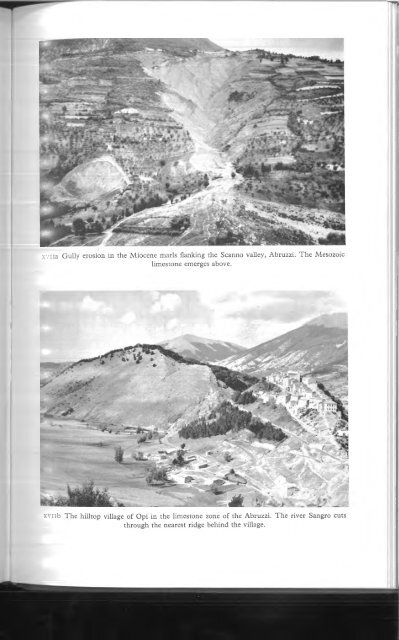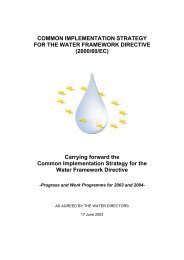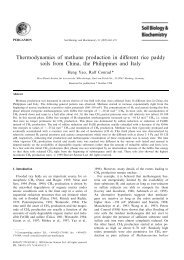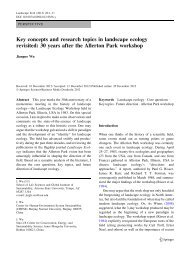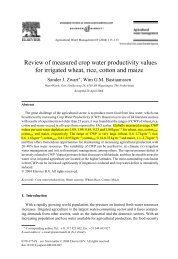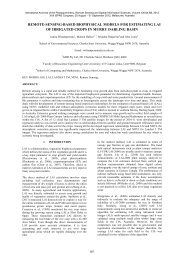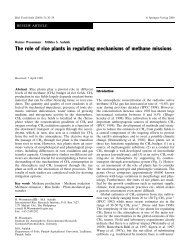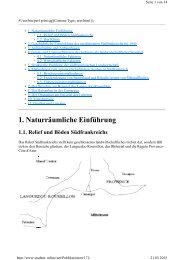Walker - 1967 - A geography of Italy
Walker - 1967 - A geography of Italy
Walker - 1967 - A geography of Italy
Create successful ePaper yourself
Turn your PDF publications into a flip-book with our unique Google optimized e-Paper software.
IN D U STR Y<br />
the view, at least until very recently, that the woman’s place is in the home and<br />
that those jobs available should go to the menfolk. It should be borne in mind,<br />
however, that in agriculture the family farm could not function without the<br />
contribution - usually unpaid - o f the womenfolk. Since about 1953 a radical<br />
change has been taking place in the labour situation; the drift from the land<br />
generally and the exodus from the South have been accompanied, forttmately, by<br />
a rising demand for labour in the manufacturing and service industries (even in<br />
the South) and by widening opportunities for emigration beyond the Alps. There<br />
can be httle doubt that the availabihty o f labour and a reduction in the deadweight<br />
o f unemployment and under-employment helped to stimulate the remarkable<br />
expansion <strong>of</strong> industry in the fifties. The block <strong>of</strong> two million unemployed,<br />
which had come to be regarded as normal, began to melt and by 1963, despite a<br />
greater mobility o f labour than the country had ever known, there were serious<br />
shortages in some categories, especially among skilled artisans. The vulnerabihty<br />
<strong>of</strong> this new-found prosperity was quickly revealed however in the 1963 recession<br />
when a tightening o f credit soon affected many enterprises, particularly in the<br />
construction industry where many fugitives from the land had found employment.<br />
I f would be remarkable if an expansion o f the scale achieved in the decade<br />
1953-1963 were to be repeated, and in view o f the steady natural increase and the<br />
likelihood o f more women entering paid employment in the future, it seems improbable<br />
that industry will be short o f labour numerically. As in all industrialized<br />
countries the problem is more hkely to be one o f quality. In this respect the<br />
opportunities and prevailing attitudes in education at all levels are receiving<br />
critical attention. Many o f the larger firms (Fiat, Innocenti) run excellent<br />
apprenticeship schemes but the smaller concerns contribute httle. The problem<br />
is not unknown in Britain.<br />
It will be appreciated that any comparison between labour costs in <strong>Italy</strong> and<br />
those in other countries poses problems o f great complexity but one or two broad<br />
generahzations may perhaps be attempted. <strong>Italy</strong> is much more o f a welfare state<br />
than is generally appreciated and whereas in Britain the employer and the<br />
employee share the cost o f welfare contributions more or less equally, in <strong>Italy</strong><br />
90% o f the burden falls on the employer. The existence o f several disparate<br />
groups in the labour force has already been noted; in that group employed<br />
mainly in large efficient concerns where wages are fixed in co-operation with the<br />
unions, the hourly rates, job for job, are somewhat lower than in most o f western<br />
Europe, but when hohdays, welfare contributions borne by the employer, and<br />
fringe benefits are added, the discrepancy in labour costs is greatly narrowed. ^<br />
The stronger bargaining position o f organized labour^ dining the boom decade<br />
I<br />
m<br />
* Figures published by the European Community Statistical Office showed that in 1962<br />
Italian manufacturers in most sectors enjoyed little or no advantage in labour costs over<br />
their Belgian and Dutch competitors.<br />
* In 1963, 3-6 million workers belonged to the communist-dominated C G IL ; 2-4 to the<br />
Catholic C IS L ; and 2-5 were shared between two organizations with less rigid political<br />
or confessional ties.<br />
257


